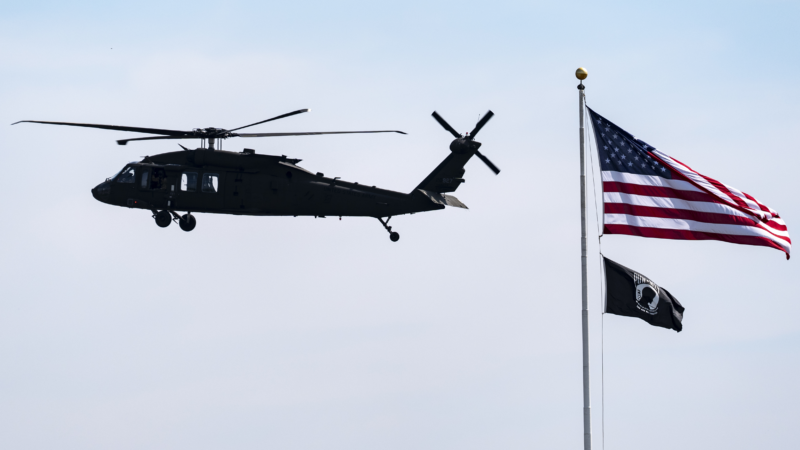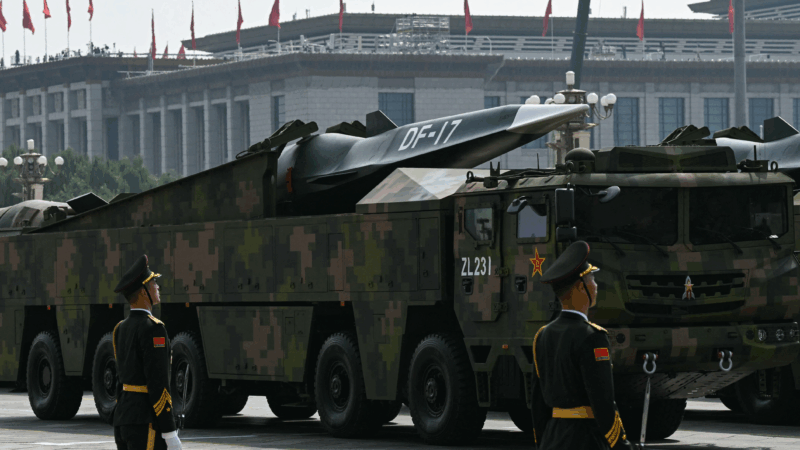A hotline between the Pentagon and DCA airport hasn’t worked since 2022, FAA says
A hotline that provided direct communication between the Pentagon and the air traffic control tower at Ronald Reagan Washington National Airport has not functioned since March 2022, a Federal Aviation Administration official confirmed Wednesday.
The public acknowledgment came during a hearing of the Senate Commerce Committee, when Republican Sen. Ted Cruz of Texas asked FAA officials about the deadly January collision between an Army Black Hawk helicopter and an American Airlines regional jet that was approaching the airport for landing. Sixty-seven people were killed in that crash.
Franklin J. McIntosh, the FAA’s deputy chief operating officer, said the agency didn’t know at the time of the accident that the hotline wasn’t functioning.
“We were not aware, but we became aware after that event, and now that we became aware of that event we’re insisting upon that line to be fixed before we resume any operations out of the Pentagon,” he said.
The FAA said in a statement to NPR that a “dedicated, direct access line” between the airport and the Pentagon’s Army Heliport “has been out since 2022 due to the construction of a new tower at the Pentagon. The two facilities continue to communicate via telephone for coordination.”
The Army did not respond to requests for comment.
An Army unit halted training flights in the National Capital Region — which includes Washington, D.C., and nearby areas in Maryland and Virginia — on May 5, less than two weeks after it had resumed flights again following a pause in response to the January crash.
That decision came after two commercial aircraft had to abort their landings at DCA on May 1, because an Army helicopter on a training mission had gotten too close to their flight path.
Margaret Wallace, a Florida Institute of Technology professor who teaches air traffic control, said it’s common for air traffic control facilities to have hotlines to other critical offices, such as weather agencies, government buildings and military facilities.
“You just push a button, and it directly rings to that facility or that agency that they need to coordinate with,” she said.
Wallace, who was also an air traffic controller in the U.S. Air Force, said hotlines can be useful to communicate with people who aren’t on the radio communications that controllers use. “Maybe it’s the commander at an Air Force base. He’s not sitting there listening to radios, but it’s a direct line to him. Or a direct line to the White House,” she said.
In the hearing Wednesday, when Cruz asked when the hotline would be working again, McIntosh said he expects the Defense Department to “expedite that timeline so they can begin their operations.”
U.S. unexpectedly adds 130,000 jobs in January after a weak 2025
U.S. employers added 130,000 jobs in January as the unemployment rate dipped to 4.3% from 4.4% in December. Annual revisions show that job growth last year was far weaker than initially reported.
Greetings from Mexico City’s iconic boulevard, where a dog on a bike steals the show
Every week, more than 100,000 people ride bikes, skates and rollerblades past some of the best-known parts of Mexico's capital. And sometimes their dogs join them too.
February may be short on days — but it boasts a long list of new books
The shortest month of the year is packed with highly anticipated new releases, including books from Michael Pollan, Tayari Jones and the late Nobel laureate Mario Vargas Llosa.
Shootings at school and home in British Columbia, Canada, leave 10 dead
A shooting at a school in British Columbia left seven people dead, while two more were found dead at a nearby home, authorities said. A woman who police believe to be the shooter also was killed.
Trump’s EPA plans to end a key climate pollution regulation
The Environmental Protection Agency is eliminating a Clean Air Act finding from 2009 that is the basis for much of the federal government's actions to rein in climate change.
The U.S. claims China is conducting secret nuclear tests. Here’s what that means
The allegations were leveled by U.S. officials late last week. Arms control experts worry that norms against nuclear testing are unraveling.







